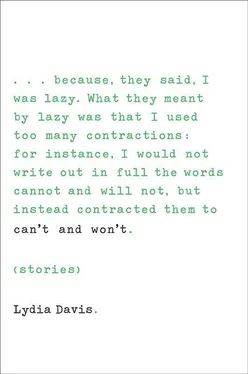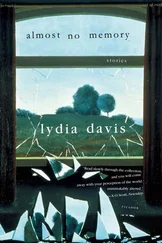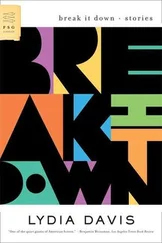* * *
I kept noticing things, in the days after she died and then after he died: a white bird flying up seemed to mean something, or a white bird landing nearby. Three crows on the branch of a tree meant something. Three days after he died, I woke up from a dream about Elysian fields, as though he had now gone into them, as though he had hovered near us for a while, for three days, even floating over our mother’s living room, and had then gone on, into the Elysian fields, maybe before going farther, to whatever place he was going to go and stay.
I wanted to believe all this, I tried hard to believe it. After all, we don’t know what happens. It’s such a strange thing — that once you are dead, you do know the answer, if you know anything at all. But whatever the answer is, you can’t communicate it to the ones who are still alive. And before you die, you can’t know whether we live on in some form after we die, or just come to an end.
It’s like what that woman in the store said to me the other day. We were talking about the little expressions our mothers liked to use over and over again—“To each his own,” or “They meant well.” She said her mother was Christian, and devout, and that she believed in an afterlife of the soul. But this woman herself did not believe, and would gently make fun of her mother. And whenever that happened, her mother would say to her, with a good-humored smile: When we die, one of us is going to be very surprised!
Our father himself believed that it was all in the body, and specifically in the brain, that it was all physical — the mind, the soul, our feelings. He had once seen a man’s brains spread over the asphalt of a driveway after an accident. He had stopped his car on the street and got out to look. My sister was a little girl then. He told her to wait for him in the car. When the body was no longer alive, he said, it was all over. But I wasn’t so sure.
There was the terror I felt one night as I was going to sleep — the sudden question that woke me up. Where was she going now? I sensed very strongly that she was going somewhere or had gone somewhere, not that she had simply stopped existing. That she, like him, had stayed nearby for a while, and then she was going — down, maybe, but also out somewhere, as though out to sea.
First, while she was still alive, but dying, I kept wondering what was happening to her. I did not hear much about it. One thing they said was that when her reflexes were worse, according to the doctors, she would move towards the pinch or the prick instead of away from it. I thought that meant that her body wanted the pain, that she wanted to feel something. I thought it meant she wanted to stay alive.
There was also that slow, dark dream I had about five days after her death. I may have had the dream just as her funeral was taking place, or just after. In the dream, I was making my way down from one level to the next in a kind of arena, the levels were wider and deeper than steps, down into a large, deep, high-ceilinged, ornately furnished and decorated room, or hall — I had an impression of dark furniture, sumptuous ornamentation, it was a hall intended for ceremony, not for any daily use. I was holding a small lantern that fit tightly over my thumb and extended outward, with a tiny flame burning in it. This was the only illumination in the vast place, a flame that wavered and flickered and had already gone out or nearly gone out once or twice. I was afraid that as I went down, as I climbed down with such difficulty, over levels that were too wide and deep to be easily straddled, the light would go out and I would be left in that deep well of darkness, that dark hall. The door I had come in by was far above me, and if I called out, no one would hear me. Without a light, I would not be able to climb back up those difficult levels.
I later realized that, given the day and the hour when I woke up from the dream, it was quite possible that I dreamt it just at the time she was being cremated. The cremation was to begin right after the funeral, my brother told me, and he told me when the funeral had ended. I thought the flickering light was her life, as she held on to it those last few days. The difficult levels descending into the hall must have been the stages of her decline, day by day. The vast and ornate hall might have been death itself, in all its ceremony, as it lay ahead, or below.
The odd problem we had afterwards was whether or not to tell our father. Our father was vague in his mind, by then, and puzzled by many things. We would wheel him up and down the hallway of his nursing home. He liked to greet the other residents with a smile and a nod. We would stop in front of the door to his room. In June, the last year he was alive, he looked at the Happy Birthday sign on the door and waved at it with his long, pale, freckled hand and asked me a question about it. He couldn’t articulate his words very well anymore. Unless you had heard him all your life, you wouldn’t know what he was saying. He was marveling over the sign, and smiling. He was probably wondering how they knew when his birthday was.
He still recognized us, but there was a lot he didn’t understand. He was not going to live much longer, though we didn’t know then how little time was left. It seemed to us important for him to know that she had died — his daughter, though she was really his stepdaughter. And yet, would he understand, if we told him? And wouldn’t it only distress him terribly, if he did understand? Or maybe he would have both reactions at once — he might understand some part of what we were saying, and then feel terrible distress at both what we had told him and his inability to understand it completely. Should his last days be filled with this distress and grief?
But the alternative seemed wrong, too — that he should end his life not knowing this important thing, that his daughter had died. Wrong that he, who had once been the head of our small family, the one who, with our mother, made the most important family decisions, the one who drove the car when we went out on a little excursion, who helped our sister with her homework when she was a teenager, who walked her to school every morning when she was in her first year of school, while our mother rested or worked, who refused or gave permission, who played jokes at the dinner table that made her and her little friends laugh, who was busy out in the backyard for a few weeks building a playhouse — that he should not be shown the respect of being told that such an important thing had happened in his own family.
He had so little time left, and we were the ones deciding something about the end of his life — that he would die knowing or not knowing. And now I’m not sure what we did, it was so many years ago. Which probably means that nothing very dramatic happened. Maybe we did tell him, out of a sense of duty, but hastily, and nervously, not wanting him to understand, and maybe there was a look of incomprehension on his face, because something was going by too quickly. But I don’t know if I’m remembering that or making it up.
* * *
On one of her visits to me, she gave me a red sweater, a red skirt, and a round clay tile for baking bread. She took a picture of me wearing the red sweater and the skirt. I think the last thing she gave me was those little white seals with perforated backs. They’re filled with charcoal, which is supposed to absorb odors. You put them in your refrigerator. I guess she thought that because I live alone, my refrigerator would be neglected and smell bad, or maybe she just thought that anyone might need this.
When did she leave the tartar sauce? You wouldn’t think a person could become attached to something like a jar of tartar sauce. But I guess you can — I didn’t want to throw it out, because she had left it. Throwing it out would mean that the days had passed, time had moved on and left her behind. Just as it was hard for me to see the new month begin, the month of July, because she would never experience that new month. Then the month of August came, and he was gone by then, too.
Читать дальше












